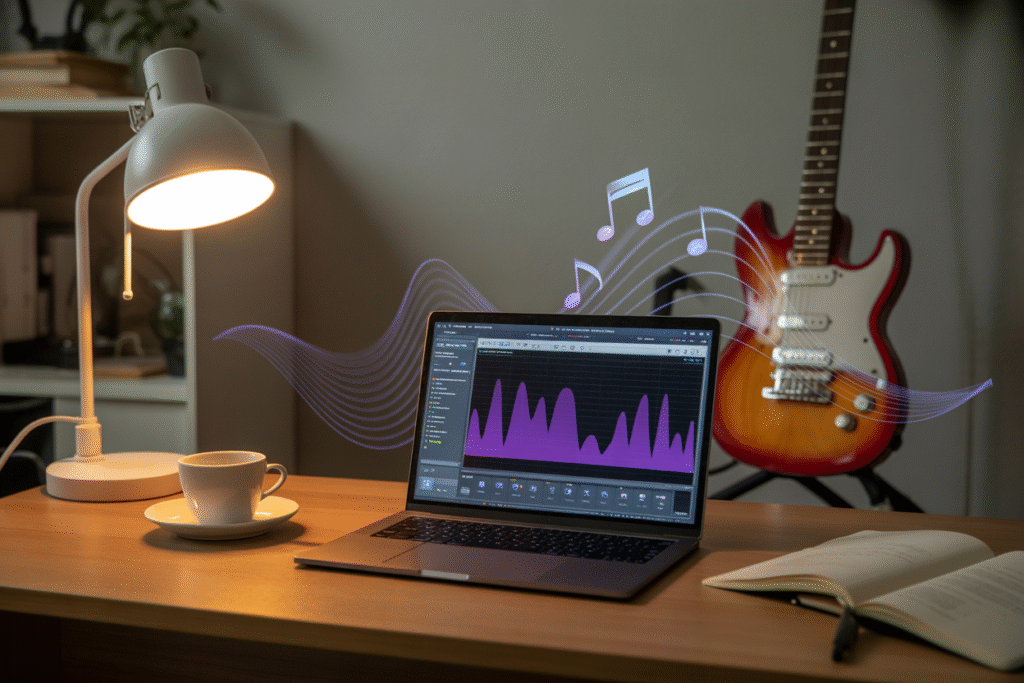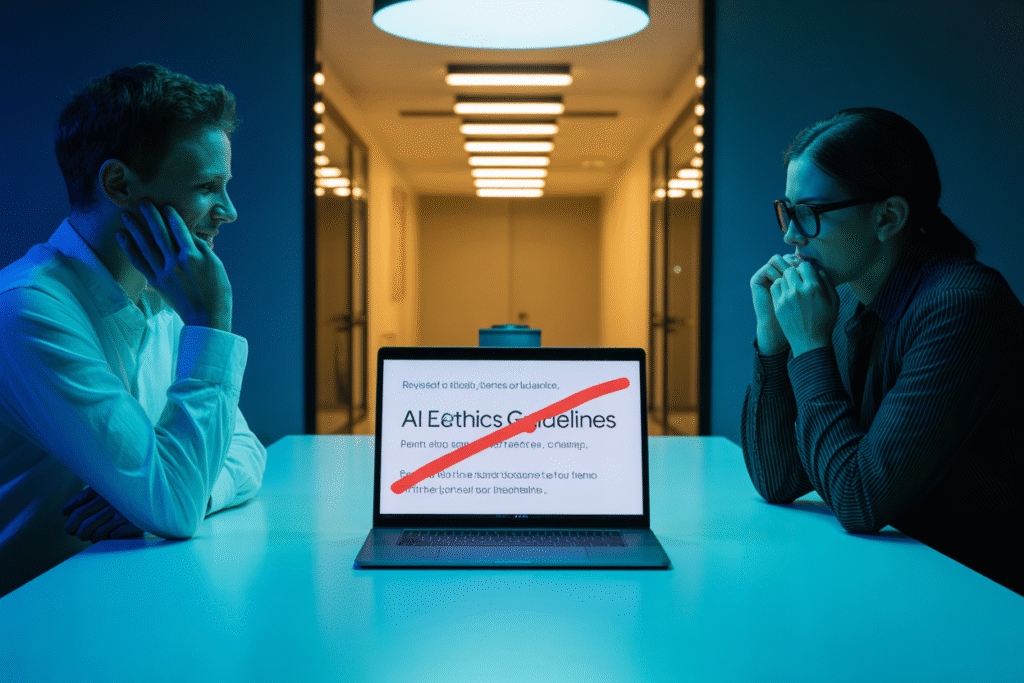ElevenLabs just dropped an AI music generator that promises pristine, commercial-ready tracks. Does this spell liberation for indie creators or extinction for human musicians?
Imagine asking your phone for an irresistibly catchy jingle and receiving a radio-ready track in minutes. No studio budget, no middlemen. That sci-fi moment arrived yesterday when ElevenLabs unveiled Eleven Music — an AI music generator stamped “safe for commercial use.” The tech headline is everywhere, forums are blazing, and experts are asking the same question: Has creativity just become a commodity?
Meet Eleven Music: The AI Bandmate Who Never Sleeps
The interface is deceptively simple. You type “thunderous, hopeful trap beat for a sports montage,” add the word “female vocal hook,” and hit generate. Forty-five seconds later, a mastered track downloads to your drive, carved out of licensed data that ElevenLabs insists will keep your legal department asleep.
ElevenLabs has hustled to dodge the copyright fire that scorched earlier AI audio startups. Instead of scraping random hits from the web, the company plugs its models into libraries that were legitimately purchased or volunteered. The hitch? Many subscription tiers lock non-podcast use behind a paywall, so indie filmmakers on a shoestring still face a soft gate.
Some early testers report goosebumps: the brass sounds humanly raw; the vocal textures flirt with uncanny valley without falling in. Others hear formulaic loops and shrug; they argue a human arranger would weave surprises an algorithm still refuses. The divide is stark, and the debate is loud.
Three things you can do right now:
– Score a TikTok ad for free under the basic plan.
– Sell that track on Spotify —but upgrade first, or the EULA bites.
– Ask the AI to morph the tempo mid-song and watch it struggle with jazz swing time.
A Choir of Backers… and a Chorus of Protesters
Pro studio owners see a backpack filmmaker walking in with instant custom music — their first instinct is panic. Session drummers who once collected checks for demo day now wonder if tomorrow’s Craigslist gig will simply read “AI only, humans need not apply.”
On the flip side, bedroom creators finally hold a pass to compete with big-budget sound. A disabled teen in Nebraska can have a string quartet for her short film without leaving her house. That dignity is hard to price, and the support group hashtags thrive with gratitude, confetti emojis, and miniature Grammy dreams.
Major labels monitor the tool like hawks. Their concern starts ethical — is the licensed data free of subconscious cloning? — and ends economic: is this the first step toward subscription catalogs that ignore label middlemen entirely?
Legal scholars join the scuffle. Some say safe harbors protect ElevenLabs as long as explicit clips are not duplicated. Others counter that chord progressions can still infringe via “style sampling.” Courts have not yet settled the argument, which means every new upload rides on shifting sand.
The Day After Tomorrow for Musicians, Marketers, and Middlemen
Picture an advertising agency in 2026. Young brand managers open a Slack channel that doubles as a jukebox. They conjure summer pop or winter noir in real time, then AB test without licensing fees piling up. The junior composer role? Rebranded to “prompt engineer.” Same paycheck, but the instrument is language.
Yet the ripple runs deeper than job titles. When anyone can fabricate original, royalty-free audio, background music loses scarcity value. That squad of composers who scored small indie games may pivot to persona branding — they become the curated taste who vets AI outputs for soul, turning human expertise from creation to curation.
Meanwhile, listeners may drown in the endless buffet of approximate sameness. Ever-shifting algorithms can spit out guitar tones that feel like yesterday’s favorite Indie playlist, but finer aesthetics could flatten into statistical comfort food. If variety collapses, do culture and memory blur together?
What happens to surveillance? Every prompt you whisper into the AI becomes data. ElevenLabs claims anonymization, but a time-stamped DNA of musical taste is still valuable for hyper-targeted ads. How much of your emotional style book is now a marketing profile?
So, ready to make your own soundtrack? Try Eleven Music tonight. Pay attention to the butterflies — or the lack of them — when the first chorus lands. Then share the track with a friend and ask one honest question: Do you feel a person behind this groove, or just a spreadsheet that learned to dance?


